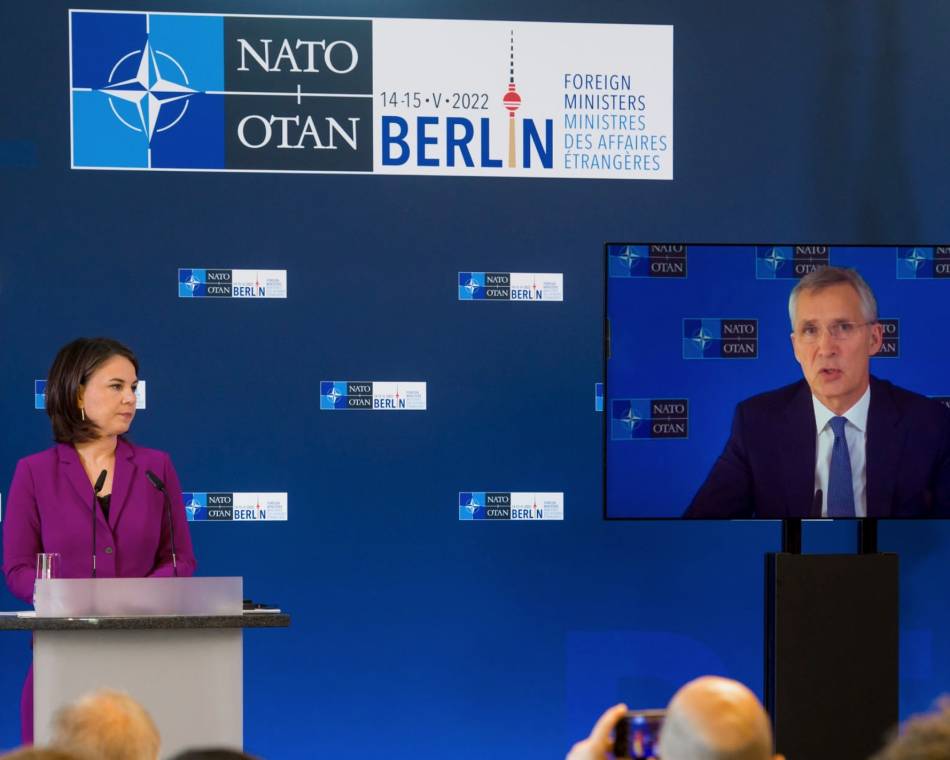NATO officials welcomed the decisions by Finland and Sweden to seek membership in the military alliance on Sunday, as foreign ministers met in Berlin to discuss fast-tracking the possible expansion.
“Their membership in NATO would increase our shared security, demonstrate that NATO’s door is open and that aggression does not pay,” NATO Secretary General Jens Stoltenberg told a joint news conference with German Foreign Minister Annalena Baerbock.









